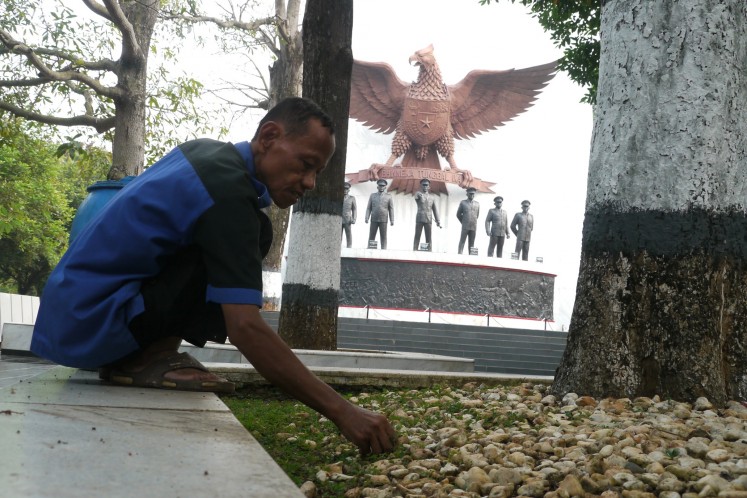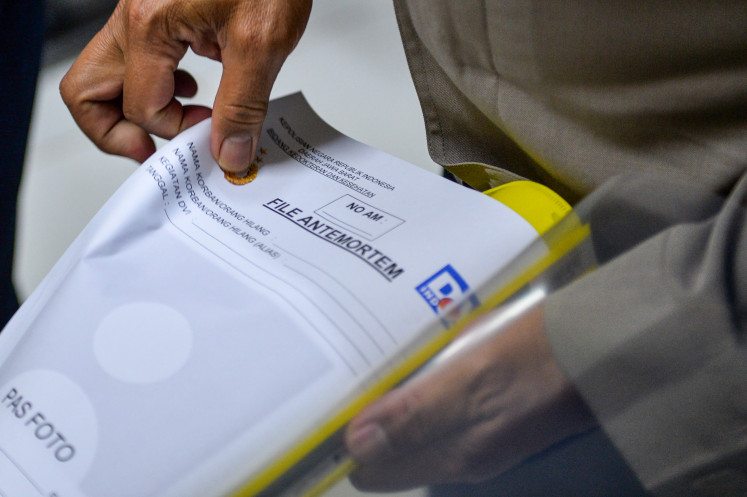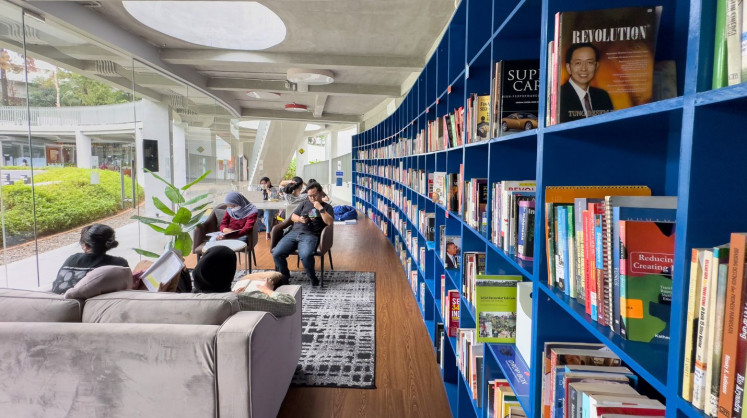Radical Islamists fail to understand philosophy of democracy: Expert
A political expert says radical Islamic groups, which promote theocracy as an alternative political system to the âmanipulativeâ secular political system, have failed to understand the basic philosophy of democracy as a system that does not accept absolutism claims and power manipulation by ruling elites
Change text size
Gift Premium Articles
to Anyone

A
political expert says radical Islamic groups, which promote theocracy as an alternative political system to the 'manipulative' secular political system, have failed to understand the basic philosophy of democracy as a system that does not accept absolutism claims and power manipulation by ruling elites.
'Theocracy is offered as an alternative as it is transcendent and sacred in nature. In their logic, such transcendence and sanctity are able to close [the door to] any possible power manipulation by ruling elites,' Noorhadi Hasan, dean of Sunan Kalijaga State Islamic University's (UIN) School of Law and Islamic Law in Yogyakarta, said on Tuesday.
Noorhadi made the statement in a speech during his inauguration ceremony as a professor on contemporary Islamic political science at the university.
Noorhadi went on to say that the theocratic system, which was built in the name of God's power and authority to counter the manipulative secular political system, had in fact enabled political rulers to force their profane wishes and interests on people and cause them to suffer.
'Theocracy is no different than authoritarianism. In theocracy, the sanctity is covered with religious symbols,' said Noorhadi.
Noorhadi, who obtained his doctorate degree from Utrecht University in 2005, identified the biggest challenge that Muslim communities had to deal with was ongoing efforts to escape from authoritarianism to create a democratic political life and to ensure that there was civic sharing and wider participation among people in making decisions on common interests.
Noorhadi said that Indonesia as the country with the world's biggest Muslim population should be proud that it had escaped from authoritarianism to eventually develop democracy. Four issues had been keys to Indonesia's success in the transformation: Pancasila, a strong civil society with two big Islamic organizations (Nahdlatul Ulama and Muhammadiyah), military reforms and a growing middle class.
'All this capital enabled Indonesia to escape from a situation many Muslim intellectuals have often called 'normative dissonance', in which many people in Islamic countries are unable to balance between their identity as Muslims and as citizens of a modern country that is built on citizenship, egalitarianism, civility and humanity principles,' said Noorhadi. (ebf)(++++)









